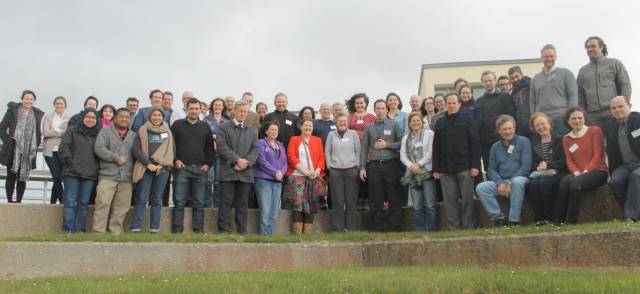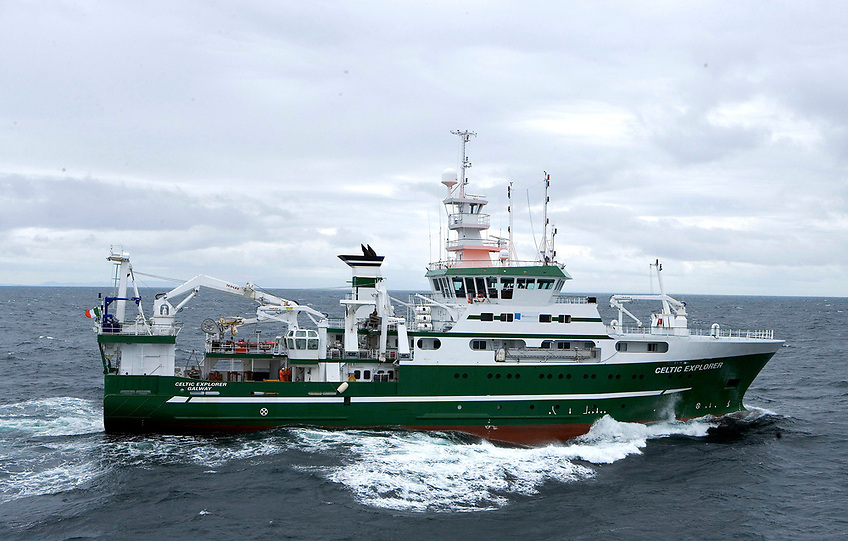The Marine Institute held the second bi-annual research vessel users conference today at its headquarters in Oranmore, Galway to discuss the vast range of capabilities of both the RV Celtic Explorer and RV Celtic Voyager after their 2015 refits, as well as the use of the remotely operated vehicle, ROV Holland 1.
Director Mick Gillooly of Ocean Science and Information Services, Marine Institute, welcomed the attendance of over 70 marine scientists and researchers who will go to sea on the national research vessels this year. He said: “The demand for survey time on the national research vessels and the quality marine research being carried out across the country shows that Ireland’s scientists are answering the call to better understand our oceans.”
“At a time when we can all see the impacts of climate change, it’s more important than ever to carry out research at sea, including oceanography, fisheries, and environmental monitoring.”
The conference provided information about using high resolution multi-beam mapping, the capabilities of the ROV Holland 1 on surveys as well as key speaker’s experiences using the equipment.
Dr Florian Le Pape of the Dublin Institute for Advanced Studies (DIAS) spoke about the deployment of an Ocean Bottom Seismometer (OBS) network off the Irish shelf as far as the Rockall Trough. Dr Le Pape recently deployed 10 Broad Band OBSs from the RV Celtic Explorer as part of an innovative research program between DIAS, the Helmholtz Centre GFZ Potsdam, Germany and instruments provided by the Alfred Wegener Institute, Germany, which uses the noise from ocean waves to generate seismic images of the earth’s crust.
Over 70 marine scientists attended the Research Vessel Users Conference at the Marine Institute. Deep sea mud volcanoes off the gulf of Cadiz and the high resolution multi-beam mapping of World War 1 shipwrecks in the Irish Sea highlighted the advanced capabilities of the research vessels for deep sea exploration.
The workshop was organised by the Marine Institute’s research vessel operations team also highlighted the value of ship time. Mr Aodhan Fitzgerald, Research Vessel Operations Manager, spoke about the future vessel availability, the ship-time competition for 2017, and how to prepare a strong research survey proposal.
The Marine Institute’s ship-time programme will provide €3 million funding in 2016 supporting 256 research days onboard the national research vessels, RV Celtic Explorer and RV Celtic Voyager. The programme gives researchers access to the national research vessels, as well as the remotely operated submarine ROV Holland I to carry out surveys that further our understanding of the ocean, support policy and development, as well as providing essential training to young researchers and undergraduates.
The programme is part of a busy schedule of research vessel programmes that includes statutory fish stock assessment, environmental monitoring, and seabed mapping surveys in Irish Waters and across the Atlantic basin to Newfoundland.
You can follow the surveys of the research vessels on the blog http://scientistsatsea.blogspot.ie where scientist on-board the national research vessels blog about their research at sea































































